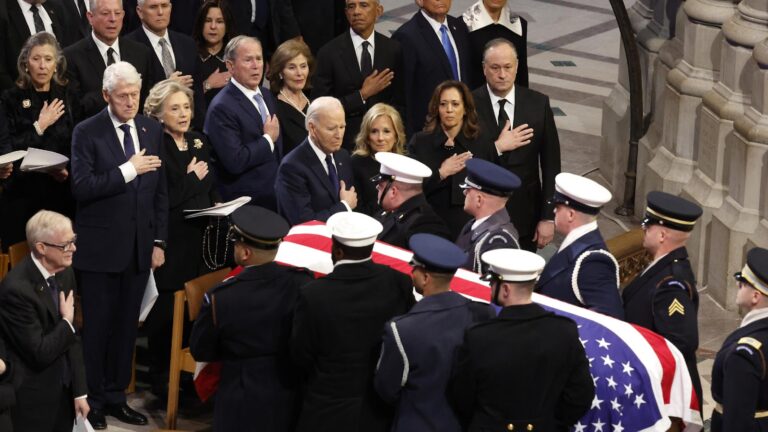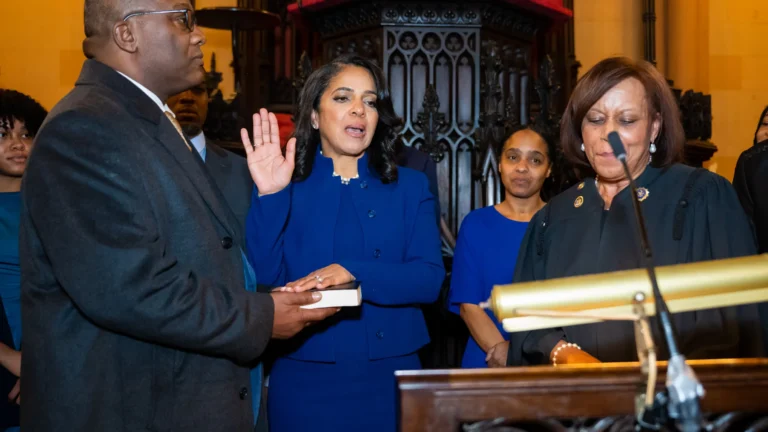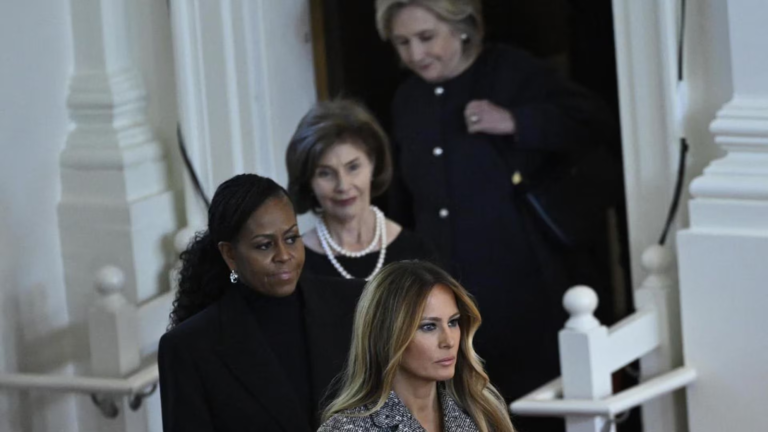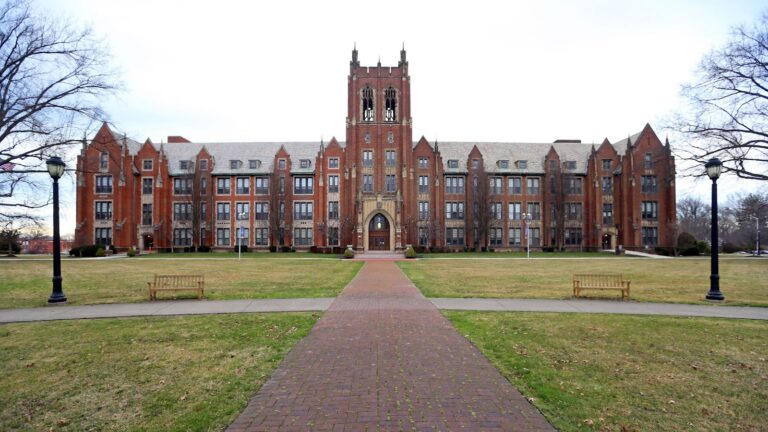
Exploring the Mystery: Why was Michelle Obama Not At Carter’s Funeral
The topic of political symbolism and personal choice has once again sparked heated debate online. One of the most puzzling questions circulating today is why was Michelle Obama not at Carter’s funeral. The intriguing query why was Michelle Obama not at Carter’s funeral has sparked heated debates among political analysts and social media enthusiasts alike. In this article, we explore the historical context, analyze various perspectives, and review public reactions to shed light on this controversial issue.
Introduction
In our modern media landscape, questions about the actions and appearances of public figures can ignite widespread discussion. The question why was Michelle Obama not at Carter’s funeral has quickly become one of those debates that divide opinions. With differing narratives emerging from political commentators, historians, and the general public, the issue is both complex and multifaceted. This article examines the background and analyzes multiple viewpoints to provide readers with a balanced understanding of the matter.
The curiosity surrounding this question has its roots in the contrasting legacies of two prominent figures. On one hand, Michelle Obama, known for her advocacy, public service, and role as a former First Lady, represents a modern approach to political engagement. On the other hand, the late Carter, whose legacy is intertwined with decades of public service and humanitarian work, symbolizes an era of distinct political traditions. The debate over why was Michelle Obama not at Carter’s funeral raises questions not only about personal decision-making but also about the symbolism behind public appearances during moments of national mourning.
This discussion is not merely about attendance at a funeral—it taps into broader themes of political allegiance, public image management, and the responsibilities of celebrated figures in times of crisis. As we delve into the background and context of this issue, we aim to understand whether the absence was a result of scheduling conflicts, deliberate political messaging, or even misinterpretations fueled by social media.
Background Context: why was Michelle Obama not at Carter’s funeral
Historically, both Michelle Obama and Jimmy Carter have been pillars of American public life, albeit in very different eras and contexts. The question why was Michelle Obama not at funeral stems from a blend of personal choices and evolving political narratives. Over the years, media outlets and online forums have speculated about the nature of this perceived disconnect between two figures whose legacies continue to shape American political discourse.
In exploring this topic, it is important to consider the contrasting public personas and the different eras they symbolize. Many have attempted to answer why was Michelle Obama not at Carter’s funeral by comparing their engagements in national service and public appearances. For instance, Carter’s long career in diplomacy and humanitarian work, combined with his later years focused on global peace initiatives, stands in stark contrast with Michelle Obama’s emphasis on education, healthy living, and social empowerment initiatives. Such comparisons have often led to questions about the appropriateness of certain public gestures during times of national significance.
Adding another layer to the discussion is the evolving nature of political participation. As the landscape of public service has shifted over decades, so too have expectations regarding how public figures pay tribute to their predecessors. In many cases, the absence or presence of a well-known figure at a significant public event can be interpreted in a variety of ways—ranging from personal scheduling conflicts to calculated political messaging. This context is essential in considering why was Michelle Obama not at Carter’s funeral.
Beyond the individual histories of these figures, the broader political environment plays a critical role. The current era is characterized by rapid information flow and instant reactions, where every action is scrutinized under a magnifying glass. The proliferation of digital media ensures that even minor omissions can become the subject of intense debate. As such, the question why Michelle Obama was not at funeral is as much about public perception as it is about the actual events of that day.
In-Depth Analysis: why was Michelle Obama not at Carter’s funeral
Delving into the matter, analysts have tried to uncover the layers behind Michelle Obama not at Carter’s funeral. Various factors such as scheduling conflicts, political strategies, and personal commitments have been examined in an attempt to provide clarity. While definitive answers may remain elusive, it is clear that the issue resonates deeply with the public because it touches upon themes of loyalty, legacy, and the responsibilities of those in the political spotlight.
One argument suggests that the timing of the events may have contributed to the public perception of absence. It is not uncommon for high-profile figures to have overlapping commitments, and the scheduling of state events or other engagements could lead to situations where attendance at every ceremonial function is impractical. Nonetheless, many still ask, why was Michelle Obama not at funeral when such occasions are often seen as a unifying moment for the nation.
Another perspective focuses on the symbolic nature of public appearances. For many, funerals of notable figures are not merely personal affairs but also significant political events that reinforce national unity and historical continuity. From this viewpoint, the decision by any influential public figure to skip such an event might be interpreted as a subtle statement. Experts have debated the issue, with some asking persistently, why was Michelle Obama not at funeral amid evolving political dynamics. They argue that even the appearance or absence of one individual can have far-reaching implications for public sentiment and historical narratives.
Furthermore, media coverage and the rapid spread of rumors online have intensified the scrutiny of this matter. In today’s digital age, information—both accurate and speculative—travels quickly, and a single omission can spark numerous theories. Some claim that strategic political calculations were at play, while others believe that personal reasons simply dictated the decision. Whatever the underlying cause, the sustained public interest in why Michelle Obama was not at funeral underscores the power of narrative in contemporary political discourse.
Analysts also point to the divergent expectations placed on different public figures. The standards by which former first ladies and former presidents are judged are not always consistent, and what might be considered a respectful absence in one case could be interpreted as a political snub in another. This inconsistency adds to the complexity of understanding why was Michelle Obama not at Carter’s funeral. It also raises broader questions about how historical legacies are honored and the role that media and public opinion play in shaping these perceptions.
Public Reaction: why was Michelle Obama not at Carter’s funeral?
The reaction from the public has been as diverse as the opinions about the matter itself. Social media platforms, blogs, and news commentaries have repeatedly questioned why was Michelle Obama not at Carter’s funeral, with debates often reflecting deeper political divides. On one side, supporters argue that personal and professional obligations can sometimes necessitate difficult choices, while critics contend that every public figure should make an appearance to honor national icons.
Many citizens express their views through online forums, often questioning the broader implications of such absences in times of national mourning. For some, the perceived slight is emblematic of larger issues within political leadership and respect for tradition. Discussions on various social platforms continue to reference why was Michelle Obama not at funeral as a means to critique what they see as a disconnect between political rhetoric and real-world actions.
The intensity of the public debate also highlights the role that digital media plays in amplifying certain narratives. With opinions and analyses spreading rapidly across social networks, even a single event can become a flashpoint for broader ideological battles. This phenomenon has led to a situation where every decision made by public figures is meticulously examined, and the query why was Michelle Obama not at Carter’s funeral has become a symbol of the era’s media dynamics. In this context, the absence or presence of a figure at a ceremonial event is never a simple matter—it becomes a lens through which the public assesses broader political trends and personal values.
Observers note that while the debate is impassioned, it is also a reminder of the high expectations placed on those who have served the nation. The controversy surrounding why was Michelle Obama not at funeral serves as a case study in how historical memory, personal choice, and public duty intersect in the modern age.
Conclusion
In conclusion, the enduring question why was Michelle Obama not at funeral continues to evoke curiosity and debate among the public and experts alike. While many theories have been put forth—ranging from scheduling issues and political strategy to deeply personal reasons—the absence remains a point of contention and discussion in political circles.
Beyond the specifics of this case, the controversy invites a broader reflection on how public figures navigate their roles in times of national significance. It challenges us to consider the expectations we place on leaders and the ways in which media narratives can transform routine decisions into subjects of intense scrutiny. The discussion, steeped in historical context and modern media dynamics, ultimately reveals much about our society’s relationship with legacy, respect, and public duty.
As debates continue and new perspectives emerge, it is clear that the issue is far from being resolved. Instead, it has become a catalyst for discussions about transparency, accountability, and the evolving nature of political symbolism. The question at hand serves not only as a focal point for controversy but also as a reminder of the complex interplay between personal choice and public expectation.
While the true reasons behind the decision may never be fully known or agreed upon, the ongoing discourse illustrates the power of a single query to encapsulate broader societal issues. The conversation around why was Michelle Obama not at Carter’s funeral is likely to persist, inspiring further investigation and debate for years to come.
In reflecting on this matter, we are prompted to consider how history will judge the actions of those who have shaped our national narrative. Every public appearance—or its absence—adds another layer to the multifaceted story of our society. It is in this context that the enduring interest in the question why was Michelle Obama not at funeral reveals not only our fascination with public figures but also our unyielding quest to understand the interplay between personal choice and the expectations of public service.
This controversy underscores the complexities inherent in modern political life. As we move forward, it is essential to approach such topics with an open mind, a critical eye, and a commitment to understanding the full spectrum of perspectives involved. The dialogue surrounding this issue serves as a testament to the dynamic and often unpredictable nature of public life, where every decision is subject to intense scrutiny and every narrative is open to interpretation.
Ultimately, the discussion surrounding why was Michelle Obama not at Carter’s funeral is a microcosm of larger debates about leadership, legacy, and the power of media in shaping public perception. Whether driven by personal obligations or strategic considerations, the impact of such decisions reverberates far beyond the immediate event. As history continues to unfold, the lessons drawn from this controversy will undoubtedly influence how future generations interpret the actions of those in the public eye.
By examining the myriad factors at play and acknowledging the complexity of public service in a rapidly evolving media landscape, we gain a deeper appreciation for the challenges faced by influential figures today. The controversy around this question serves as a reminder that behind every public gesture—or lack thereof—lies a web of intricate considerations, where personal choices intersect with the broader currents of history and public expectation.
As this debate endures, it continues to spark discussion and reflection across diverse segments of society. In the end, the conversation is less about assigning blame and more about understanding the forces that shape public life in our modern era.



